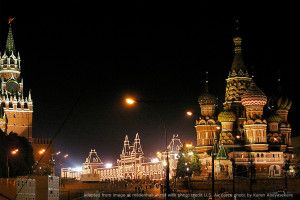Emerging Leadership Crisis in Moscow Could be a More Violent Version of August 1991, Gallyamov Says

(Paul Goble – Window On Eurasia – Staunton, Nov. 27, 2023)
Even now, “Russian elites are unhappy with Putin, but they aren’t trying to overthrow him” because “they have something to lose and don’t want to take risks,” Abbas Gallyamov says. But “at some point, it will be this conflict within the elites that will destroy the regime.”
According to the former Putin speechwriter, the Russian elites are split between hawks who want to build on what Putin has done up to now but in more radical ways that he is willing or able to and technocrats who oppose escalation at home and abroad and are ready for compromise (publizist.ru/blogs/112974/47235/-).
The technocrats are “much more numerous but much less consolidated,” while the hawks, albeit fewer in number are nearer the top and much more closely integrated with one another, Gallyamov says. They are thus in a situation where the hawks are dominant but the technocrats are increasingly angry.
But “as the situation worsens,” he continues, “the intensity of confrontation will increase.” However it will not at least initially be about replacing him but about controlling the direction of his policies. As everyone should remember that is what the Prigozhin rising was all about: not getting rid of Putin but changing his approach.
“The logic of events in this case will most likely be similar to what happened in August 1991, although everything will be handled much more harshly. As then, the first step will be taken by the hawks as they control most of the power resources and this gives them the courage to act.”
According to Gallyamov, “the hawks will decide that Putin is already sufficiently dependent on them and at the same time has lost the ability to take ‘decisive actions.’ In other words, he is not crazy enough, and so they will escalate the game” against the technocrats who will then be forced to respond.
The population in turn, “the street,” will do the same. “People are tired of war and endless ‘patriotic’ hysteria. They are simply passive but as soon as it appears to them that they have some allies at the top and that therefore the fight is not hopeless, they will immediately join in.”
What will trigger such a turn of events is unclear, but regardless of what does, the logic of what will follow is unchanged. And just as Gorbachev lost his remaining power as a result of the August 1991 events, so too Putin will lose his power and position in much the same way if this logic works itself out.
“The most important thing to understand,” the commentator concludes, is “that there are many fault lines among the Russian elites, and the only glue that holds them together into a single whole is Putin himself. When there is too little glue, when it begins to lose its grip, the structures themselves will fall apart.”
[article also appeared at windowoneurasia2.blogspot.com/2023/11/emerging-leadership-crisis-in-moscow.html and eurasiareview.com/30112023-emerging-leadership-crisis-in-moscow-could-be-a-more-violent-version-of-august-1991-oped/]
